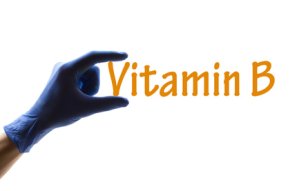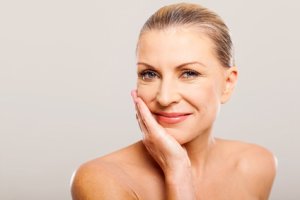afterLoad (456.16KB) (2.53ms)
afterInitialise (1.27MB) (42.52ms)
afterRoute (840.53KB) (10.84ms)
beforeRenderComponent com_tags (20.62KB) (326μs)
afterRenderComponent com_tags (1.41MB) (61.96ms)
afterDispatch (27.36KB) (2.76ms)
beforeRenderRawModule mod_articles_category (READ MORE...) (439.86KB) (15.68ms)
Before Access::preloadComponents (all components) (50.9KB) (611μs)
After Access::preloadComponents (all components) (103.05KB) (839μs)
Before Access::getAssetRules (id:8 name:com_content) (840B) (22μs)
After Access::getAssetRules (id:8 name:com_content) (7.05KB) (59μs)
afterRenderRawModule mod_articles_category (READ MORE...) (5.98KB) (92.95ms)
beforeRenderRawModule mod_custom (BOOST YOUR IMMUNE DEFENSE) (6.45KB) (32μs)
afterRenderRawModule mod_custom (BOOST YOUR IMMUNE DEFENSE) (3.8KB) (268μs)
beforeRenderRawModule mod_tags_popular (Search) (2.36KB) (16μs)
afterRenderRawModule mod_tags_popular (Search) (19.95KB) (94.41ms)
beforeRenderRawModule mod_custom (Get additionel and more detailed knowledge ) (816B) (32μs)
afterRenderRawModule mod_custom (Get additionel and more detailed knowledge ) (1.55KB) (50μs)
beforeRenderRawModule mod_custom (Overview of vitamins, minerals, and essential fatty acids) (768B) (1.05ms)
afterRenderRawModule mod_custom (Overview of vitamins, minerals, and essential fatty acids) (960B) (49μs)
beforeRenderRawModule mod_custom (Q10 goes by many names) (608B) (13μs)
afterRenderRawModule mod_custom (Q10 goes by many names) (928B) (23μs)
beforeRenderRawModule mod_custom (Check this before you buy a Q10 product) (752B) (10μs)
afterRenderRawModule mod_custom (Check this before you buy a Q10 product) (944B) (31μs)
beforeRenderRawModule mod_custom (Are you taking supplements) (736B) (10μs)
afterRenderRawModule mod_custom (Are you taking supplements) (1.03KB) (20μs)
beforeRenderRawModule mod_custom (Weight loss that works) (736B) (8μs)
afterRenderRawModule mod_custom (Weight loss that works) (1.03KB) (20μs)
beforeRenderRawModule mod_custom (Antiaging) (720B) (9μs)
afterRenderRawModule mod_custom (Antiaging) (912B) (17μs)
beforeRenderRawModule mod_menu (Are you getting enough vitamins and minerals?) (2.5KB) (11μs)
afterRenderRawModule mod_menu (Are you getting enough vitamins and minerals?) (22.39KB) (579μs)
beforeRenderRawModule mod_menu (The key to increased well-being) (736B) (17μs)
afterRenderRawModule mod_menu (The key to increased well-being) (17.83KB) (1.34ms)
beforeRenderRawModule mod_menu (Did you know.....) (720B) (25μs)
afterRenderRawModule mod_menu (Did you know.....) (25.52KB) (389μs)
beforeRenderRawModule mod_custom (Useful Links) (1.06KB) (16μs)
afterRenderRawModule mod_custom (Useful Links) (1.02KB) (34μs)
beforeRenderRawModule mod_custom (Chronic fatigue tied Alan to his bed but Q10 capsules saved him:) (244.28KB) (6.07ms)
afterRenderRawModule mod_custom (Chronic fatigue tied Alan to his bed but Q10 capsules saved him:) (1.06KB) (51μs)
beforeRenderModule mod_custom (Chronic fatigue tied Alan to his bed but Q10 capsules saved him:) (768B) (4μs)
afterRenderModule mod_custom (Chronic fatigue tied Alan to his bed but Q10 capsules saved him:) (1.3KB) (70μs)
beforeRenderRawModule mod_custom (Cholesterol-lowering without side effects:) (368B) (14μs)
afterRenderRawModule mod_custom (Cholesterol-lowering without side effects:) (1.06KB) (24μs)
beforeRenderModule mod_custom (Cholesterol-lowering without side effects:) (752B) (2μs)
afterRenderModule mod_custom (Cholesterol-lowering without side effects:) (1.28KB) (31μs)
beforeRenderModule mod_articles_category (READ MORE...) (20.82KB) (2.54ms)
afterRenderModule mod_articles_category (READ MORE...) (1.25KB) (64μs)
beforeRenderModule mod_custom (BOOST YOUR IMMUNE DEFENSE) (6.81KB) (16μs)
afterRenderModule mod_custom (BOOST YOUR IMMUNE DEFENSE) (1.28KB) (26μs)
beforeRenderModule mod_tags_popular (Search) (1.98KB) (12μs)
afterRenderModule mod_tags_popular (Search) (1.27KB) (23μs)
beforeRenderModule mod_custom (Get additionel and more detailed knowledge ) (1.17KB) (10μs)
afterRenderModule mod_custom (Get additionel and more detailed knowledge ) (1.3KB) (21μs)
beforeRenderModule mod_custom (Overview of vitamins, minerals, and essential fatty acids) (384B) (9μs)
afterRenderModule mod_custom (Overview of vitamins, minerals, and essential fatty acids) (1.31KB) (21μs)
beforeRenderModule mod_custom (Q10 goes by many names) (208B) (8μs)
afterRenderModule mod_custom (Q10 goes by many names) (1.27KB) (21μs)
beforeRenderModule mod_custom (Check this before you buy a Q10 product) (352B) (9μs)
afterRenderModule mod_custom (Check this before you buy a Q10 product) (1.28KB) (21μs)
beforeRenderModule mod_custom (Are you taking supplements) (352B) (8μs)
afterRenderModule mod_custom (Are you taking supplements) (1.28KB) (21μs)
beforeRenderModule mod_custom (Weight loss that works) (336B) (9μs)
afterRenderModule mod_custom (Weight loss that works) (1.27KB) (20μs)
beforeRenderModule mod_custom (Antiaging) (336B) (9μs)
afterRenderModule mod_custom (Antiaging) (3.77KB) (21μs)
beforeRenderModule mod_menu (Are you getting enough vitamins and minerals?) (2.13KB) (11μs)
afterRenderModule mod_menu (Are you getting enough vitamins and minerals?) (1.3KB) (21μs)
beforeRenderModule mod_menu (The key to increased well-being) (352B) (10μs)
afterRenderModule mod_menu (The key to increased well-being) (1.28KB) (21μs)
beforeRenderModule mod_menu (Did you know.....) (336B) (9μs)
afterRenderModule mod_menu (Did you know.....) (1.27KB) (20μs)
beforeRenderModule mod_custom (Useful Links) (1.44KB) (9μs)
afterRenderModule mod_custom (Useful Links) (1.27KB) (20μs)
beforeRenderRawModule mod_menu (Main Menu - English) (29.14KB) (1.49ms)
afterRenderRawModule mod_menu (Main Menu - English) (186.95KB) (4.61ms)
beforeRenderModule mod_menu (Main Menu - English) (720B) (5μs)
afterRenderModule mod_menu (Main Menu - English) (4.86KB) (71μs)
beforeRenderRawModule mod_languages (Sprogskift) (3.94KB) (19μs)
afterRenderRawModule mod_languages (Sprogskift) (28.06KB) (5.11ms)
beforeRenderModule mod_languages (Sprogskift) (720B) (8μs)
afterRenderModule mod_languages (Sprogskift) (5.31KB) (26μs)
beforeRenderRawModule mod_finder () (6.34KB) (14μs)
afterRenderRawModule mod_finder () (128.59KB) (3.62ms)
beforeRenderModule mod_finder () (704B) (6μs)
afterRenderModule mod_finder () (3.29KB) (43μs)
beforeRenderRawModule mod_custom () (6.62KB) (347μs)
afterRenderRawModule mod_custom () (22.64KB) (3.9ms)
beforeRenderModule mod_custom () (704B) (9μs)
afterRenderModule mod_custom () (1.23KB) (67μs)
beforeRenderRawModule mod_menu (Main Menu - English) (5.07KB) (134μs)
afterRenderRawModule mod_menu (Main Menu - English) (6.3KB) (935μs)
beforeRenderModule mod_menu (Main Menu - English) (720B) (4μs)
afterRenderModule mod_menu (Main Menu - English) (1.25KB) (59μs)
beforeRenderRawModule mod_languages (Sprogskift Mobil) (912B) (19μs)
afterRenderRawModule mod_languages (Sprogskift Mobil) (3.89KB) (1.98ms)
beforeRenderModule mod_languages (Sprogskift Mobil) (720B) (4μs)
afterRenderModule mod_languages (Sprogskift Mobil) (1.27KB) (47μs)
beforeRenderRawModule mod_finder () (2.3KB) (15μs)
afterRenderRawModule mod_finder () (6.29KB) (2.09ms)
beforeRenderModule mod_finder () (704B) (7μs)
afterRenderModule mod_finder () (1.23KB) (67μs)
beforeRenderRawModule mod_custom () (8.66KB) (211μs)
afterRenderRawModule mod_custom () (904B) (1.02ms)
beforeRenderModule mod_custom () (704B) (9μs)
afterRenderModule mod_custom () (2.43KB) (49μs)
beforeRenderRawModule mod_custom () (688B) (152μs)
afterRenderRawModule mod_custom () (896B) (167μs)
beforeRenderModule mod_custom () (704B) (3μs)
afterRenderModule mod_custom () (2.71KB) (26μs)
afterRender (247.05KB) (9.42ms)
| 1 x afterRenderRawModule mod_tags_popular (Search) (19.95KB) (25.04%) | 94.41ms |
| 1 x afterRenderRawModule mod_articles_category (READ MORE...) (5.98KB) (24.66%) | 92.95ms |
| 1 x afterRenderComponent com_tags (1.41MB) (16.44%) | 61.96ms |
| 1 x afterInitialise (1.27MB) (11.28%) | 42.52ms |
| 1 x beforeRenderRawModule mod_articles_category (READ MORE...) (439.86KB) (4.16%) | 15.68ms |
| 1 x afterRoute (840.53KB) (2.88%) | 10.84ms |
| 1 x afterRender (247.05KB) (2.5%) | 9.42ms |
| 1 x beforeRenderRawModule mod_custom (Chronic fatigue tied Alan to his bed but Q10 capsules saved him:) (244.28KB) (1.61%) | 6.07ms |
| 1 x afterRenderRawModule mod_languages (Sprogskift) (28.06KB) (1.35%) | 5.11ms |
| 1 x afterRenderRawModule mod_menu (Main Menu - English) (186.95KB) (1.22%) | 4.61ms |
| 1 x afterRenderRawModule mod_custom () (22.64KB) (1.03%) | 3.90ms |
| 1 x afterRenderRawModule mod_finder () (128.59KB) (0.96%) | 3.62ms |
| 1 x afterDispatch (27.36KB) (0.73%) | 2.76ms |
| 1 x beforeRenderModule mod_articles_category (READ MORE...) (20.82KB) (0.67%) | 2.54ms |
| 1 x afterLoad (456.16KB) (0.67%) | 2.53ms |
| 1 x afterRenderRawModule mod_finder () (6.29KB) (0.55%) | 2.09ms |
| 1 x afterRenderRawModule mod_languages (Sprogskift Mobil) (3.89KB) (0.53%) | 1.98ms |
| 1 x beforeRenderRawModule mod_menu (Main Menu - English) (29.14KB) (0.4%) | 1.49ms |
| 1 x afterRenderRawModule mod_menu (The key to increased well-being) (17.83KB) (0.36%) | 1.34ms |
| 1 x beforeRenderRawModule mod_custom (Overview of vitamins, minerals, and essential fatty acids) (768B) (0.28%) | 1.05ms |
| 1 x afterRenderRawModule mod_custom () (904B) (0.27%) | 1.02ms |
| 1 x afterRenderRawModule mod_menu (Main Menu - English) (6.3KB) (0.25%) | 935μs |
| 1 x After Access::preloadComponents (all components) (103.05KB) (0.22%) | 839μs |
| 1 x Before Access::preloadComponents (all components) (50.9KB) (0.16%) | 611μs |
| 1 x afterRenderRawModule mod_menu (Are you getting enough vitamins and minerals?) (22.39KB) (0.15%) | 579μs |
| 1 x afterRenderRawModule mod_menu (Did you know.....) (25.52KB) (0.1%) | 389μs |
| 1 x beforeRenderRawModule mod_custom () (6.62KB) (0.09%) | 347μs |
| 1 x beforeRenderComponent com_tags (20.62KB) (0.09%) | 326μs |
| 1 x afterRenderRawModule mod_custom (BOOST YOUR IMMUNE DEFENSE) (3.8KB) (0.07%) | 268μs |
| 1 x beforeRenderRawModule mod_custom () (8.66KB) (0.06%) | 211μs |
| 1 x afterRenderRawModule mod_custom () (896B) (0.04%) | 167μs |
| 1 x beforeRenderRawModule mod_custom () (688B) (0.04%) | 152μs |
| 1 x beforeRenderRawModule mod_menu (Main Menu - English) (5.07KB) (0.04%) | 134μs |
| 1 x afterRenderModule mod_menu (Main Menu - English) (4.86KB) (0.02%) | 71μs |
| 1 x afterRenderModule mod_custom (Chronic fatigue tied Alan to his bed but Q10 capsules saved him:) (1.3KB) (0.02%) | 70μs |
| 1 x afterRenderModule mod_custom () (1.23KB) (0.02%) | 67μs |
| 1 x afterRenderModule mod_finder () (1.23KB) (0.02%) | 67μs |
| 1 x afterRenderModule mod_articles_category (READ MORE...) (1.25KB) (0.02%) | 64μs |
| 1 x After Access::getAssetRules (id:8 name:com_content) (7.05KB) (0.02%) | 59μs |
| 1 x afterRenderModule mod_menu (Main Menu - English) (1.25KB) (0.02%) | 59μs |
| 1 x afterRenderRawModule mod_custom (Chronic fatigue tied Alan to his bed but Q10 capsules saved him:) (1.06KB) (0.01%) | 51μs |
| 1 x afterRenderRawModule mod_custom (Get additionel and more detailed knowledge ) (1.55KB) (0.01%) | 50μs |
| 1 x afterRenderModule mod_custom () (2.43KB) (0.01%) | 49μs |
| 1 x afterRenderRawModule mod_custom (Overview of vitamins, minerals, and essential fatty acids) (960B) (0.01%) | 49μs |
| 1 x afterRenderModule mod_languages (Sprogskift Mobil) (1.27KB) (0.01%) | 47μs |
| 1 x afterRenderModule mod_finder () (3.29KB) (0.01%) | 43μs |
| 1 x afterRenderRawModule mod_custom (Useful Links) (1.02KB) (0.01%) | 34μs |
| 1 x beforeRenderRawModule mod_custom (BOOST YOUR IMMUNE DEFENSE) (6.45KB) (0.01%) | 32μs |
| 1 x beforeRenderRawModule mod_custom (Get additionel and more detailed knowledge ) (816B) (0.01%) | 32μs |
| 1 x afterRenderRawModule mod_custom (Check this before you buy a Q10 product) (944B) (0.01%) | 31μs |
| 1 x afterRenderModule mod_custom (Cholesterol-lowering without side effects:) (1.28KB) (0.01%) | 31μs |
| 1 x afterRenderModule mod_custom (BOOST YOUR IMMUNE DEFENSE) (1.28KB) (0.01%) | 26μs |
| 1 x afterRenderModule mod_languages (Sprogskift) (5.31KB) (0.01%) | 26μs |
| 1 x afterRenderModule mod_custom () (2.71KB) (0.01%) | 26μs |
| 1 x beforeRenderRawModule mod_menu (Did you know.....) (720B) (0.01%) | 25μs |
| 1 x afterRenderRawModule mod_custom (Cholesterol-lowering without side effects:) (1.06KB) (0.01%) | 24μs |
| 1 x afterRenderRawModule mod_custom (Q10 goes by many names) (928B) (0.01%) | 23μs |
| 1 x afterRenderModule mod_tags_popular (Search) (1.27KB) (0.01%) | 23μs |
| 1 x Before Access::getAssetRules (id:8 name:com_content) (840B) (0.01%) | 22μs |
| 1 x afterRenderModule mod_custom (Get additionel and more detailed knowledge ) (1.3KB) (0.01%) | 21μs |
| 1 x afterRenderModule mod_custom (Overview of vitamins, minerals, and essential fatty acids) (1.31KB) (0.01%) | 21μs |
| 1 x afterRenderModule mod_custom (Q10 goes by many names) (1.27KB) (0.01%) | 21μs |
| 1 x afterRenderModule mod_custom (Check this before you buy a Q10 product) (1.28KB) (0.01%) | 21μs |
| 1 x afterRenderModule mod_custom (Are you taking supplements) (1.28KB) (0.01%) | 21μs |
| 1 x afterRenderModule mod_custom (Antiaging) (3.77KB) (0.01%) | 21μs |
| 1 x afterRenderModule mod_menu (Are you getting enough vitamins and minerals?) (1.3KB) (0.01%) | 21μs |
| 1 x afterRenderModule mod_menu (The key to increased well-being) (1.28KB) (0.01%) | 21μs |
| 3 x beforeRenderModule mod_custom () (704B) (0.01%) | 21μs |
| 1 x afterRenderRawModule mod_custom (Are you taking supplements) (1.03KB) (0.01%) | 20μs |
| 1 x afterRenderRawModule mod_custom (Weight loss that works) (1.03KB) (0.01%) | 20μs |
| 1 x afterRenderModule mod_custom (Weight loss that works) (1.27KB) (0.01%) | 20μs |
| 1 x afterRenderModule mod_menu (Did you know.....) (1.27KB) (0.01%) | 20μs |
| 1 x afterRenderModule mod_custom (Useful Links) (1.27KB) (0.01%) | 20μs |
| 1 x beforeRenderRawModule mod_languages (Sprogskift) (3.94KB) (0%) | 19μs |
| 1 x beforeRenderRawModule mod_languages (Sprogskift Mobil) (912B) (0%) | 19μs |
| 1 x afterRenderRawModule mod_custom (Antiaging) (912B) (0%) | 17μs |
| 1 x beforeRenderRawModule mod_menu (The key to increased well-being) (736B) (0%) | 17μs |
| 1 x beforeRenderModule mod_custom (BOOST YOUR IMMUNE DEFENSE) (6.81KB) (0%) | 16μs |
| 1 x beforeRenderRawModule mod_tags_popular (Search) (2.36KB) (0%) | 16μs |
| 1 x beforeRenderRawModule mod_custom (Useful Links) (1.06KB) (0%) | 16μs |
| 1 x beforeRenderRawModule mod_finder () (2.3KB) (0%) | 15μs |
| 1 x beforeRenderRawModule mod_custom (Cholesterol-lowering without side effects:) (368B) (0%) | 14μs |
| 1 x beforeRenderRawModule mod_finder () (6.34KB) (0%) | 14μs |
| 1 x beforeRenderRawModule mod_custom (Q10 goes by many names) (608B) (0%) | 13μs |
| 2 x beforeRenderModule mod_finder () (704B) (0%) | 13μs |
| 1 x beforeRenderModule mod_tags_popular (Search) (1.98KB) (0%) | 12μs |
| 1 x beforeRenderRawModule mod_menu (Are you getting enough vitamins and minerals?) (2.5KB) (0%) | 11μs |
| 1 x beforeRenderModule mod_menu (Are you getting enough vitamins and minerals?) (2.13KB) (0%) | 11μs |
| 1 x beforeRenderRawModule mod_custom (Check this before you buy a Q10 product) (752B) (0%) | 10μs |
| 1 x beforeRenderRawModule mod_custom (Are you taking supplements) (736B) (0%) | 10μs |
| 1 x beforeRenderModule mod_custom (Get additionel and more detailed knowledge ) (1.17KB) (0%) | 10μs |
| 1 x beforeRenderModule mod_menu (The key to increased well-being) (352B) (0%) | 10μs |
| 1 x beforeRenderRawModule mod_custom (Antiaging) (720B) (0%) | 9μs |
| 1 x beforeRenderModule mod_custom (Overview of vitamins, minerals, and essential fatty acids) (384B) (0%) | 9μs |
| 1 x beforeRenderModule mod_custom (Check this before you buy a Q10 product) (352B) (0%) | 9μs |
| 1 x beforeRenderModule mod_custom (Weight loss that works) (336B) (0%) | 9μs |
| 1 x beforeRenderModule mod_custom (Antiaging) (336B) (0%) | 9μs |
| 1 x beforeRenderModule mod_menu (Did you know.....) (336B) (0%) | 9μs |
| 1 x beforeRenderModule mod_custom (Useful Links) (1.44KB) (0%) | 9μs |
| 2 x beforeRenderModule mod_menu (Main Menu - English) (720B) (0%) | 9μs |
| 1 x beforeRenderModule mod_custom (Q10 goes by many names) (208B) (0%) | 8μs |
| 1 x beforeRenderModule mod_languages (Sprogskift) (720B) (0%) | 8μs |
| 1 x beforeRenderRawModule mod_custom (Weight loss that works) (736B) (0%) | 8μs |
| 1 x beforeRenderModule mod_custom (Are you taking supplements) (352B) (0%) | 8μs |
| 1 x beforeRenderModule mod_custom (Chronic fatigue tied Alan to his bed but Q10 capsules saved him:) (768B) (0%) | 4μs |
| 1 x beforeRenderModule mod_languages (Sprogskift Mobil) (720B) (0%) | 4μs |
| 1 x beforeRenderModule mod_custom (Cholesterol-lowering without side effects:) (752B) (0%) | 2μs |
 We all know the importance of eating a healthy diet, exercising, getting sufficient sleep, and sunbathing with caution. Still, life is not always that simple, and even if we stick with the official guidelines for healthy living, it can often be challenging to get adequate amounts of the essential nutrients. Nonetheless, supplements are useful as compensation for these shortcomings. In fact, the use of such products can be compared with plant fertilizers that make plants look healthy, flourish and thrive.
We all know the importance of eating a healthy diet, exercising, getting sufficient sleep, and sunbathing with caution. Still, life is not always that simple, and even if we stick with the official guidelines for healthy living, it can often be challenging to get adequate amounts of the essential nutrients. Nonetheless, supplements are useful as compensation for these shortcomings. In fact, the use of such products can be compared with plant fertilizers that make plants look healthy, flourish and thrive.







 Having healthy-looking hair means a lot to most people. Hair that splits at the ends, hair loss, and other hair problems may be caused by stress, hormone changes, and numerous other factors. In this article, we will take a closer look at the diet and its impact on hair health, and we will look at available studies of protein, iron, zinc, selenium, silica, B vitamins, vitamin D and vitamin A. The fact is, we need plenty of these nutrients in a form that the body can absorb and utilize. On the other hand, getting too much can do more harm than good, according to an article in Dermatology Practical & Conceptual, in which the author has analyzed the available research.
Having healthy-looking hair means a lot to most people. Hair that splits at the ends, hair loss, and other hair problems may be caused by stress, hormone changes, and numerous other factors. In this article, we will take a closer look at the diet and its impact on hair health, and we will look at available studies of protein, iron, zinc, selenium, silica, B vitamins, vitamin D and vitamin A. The fact is, we need plenty of these nutrients in a form that the body can absorb and utilize. On the other hand, getting too much can do more harm than good, according to an article in Dermatology Practical & Conceptual, in which the author has analyzed the available research. All
All 
 An important element in skincare and natural anti-ageing is to protect our cells against free radicals, which are aggressive oxygen compounds that we humans are exposed to. The free radical burden increases tremendously as a result of stress, too little sleep, ageing processes, smoking, inflammation, poisoning, medical drugs, and sunburns. Our only source of protection against free radicals is the presence of different antioxidants such as vitamins A, C, and E, selenium, zinc, and Q10, but we also need essential fatty acids. Optimal skincare requires that we get adequate quantities of the different nutrients, which are also an important element in our energy turnover. But what is skin ageing really? And why can we not simply stop it with anti-wrinkle creams, Botox, and plastic surgery? Also, which antioxidants and essential fatty acids are difficult to get in the right quantities?
An important element in skincare and natural anti-ageing is to protect our cells against free radicals, which are aggressive oxygen compounds that we humans are exposed to. The free radical burden increases tremendously as a result of stress, too little sleep, ageing processes, smoking, inflammation, poisoning, medical drugs, and sunburns. Our only source of protection against free radicals is the presence of different antioxidants such as vitamins A, C, and E, selenium, zinc, and Q10, but we also need essential fatty acids. Optimal skincare requires that we get adequate quantities of the different nutrients, which are also an important element in our energy turnover. But what is skin ageing really? And why can we not simply stop it with anti-wrinkle creams, Botox, and plastic surgery? Also, which antioxidants and essential fatty acids are difficult to get in the right quantities? "After about one week of taking the Q10 supplement I could feel a huge difference," says 23-year old Alan Piccini, who has been suffering from extreme fatigue and muscle aches ever since he was a child.
"After about one week of taking the Q10 supplement I could feel a huge difference," says 23-year old Alan Piccini, who has been suffering from extreme fatigue and muscle aches ever since he was a child. “Taking capsules with co-enzyme Q10 has freed me of the severe side effects of my cholesterol lowering medicine,” Mrs Franken explains.
“Taking capsules with co-enzyme Q10 has freed me of the severe side effects of my cholesterol lowering medicine,” Mrs Franken explains.